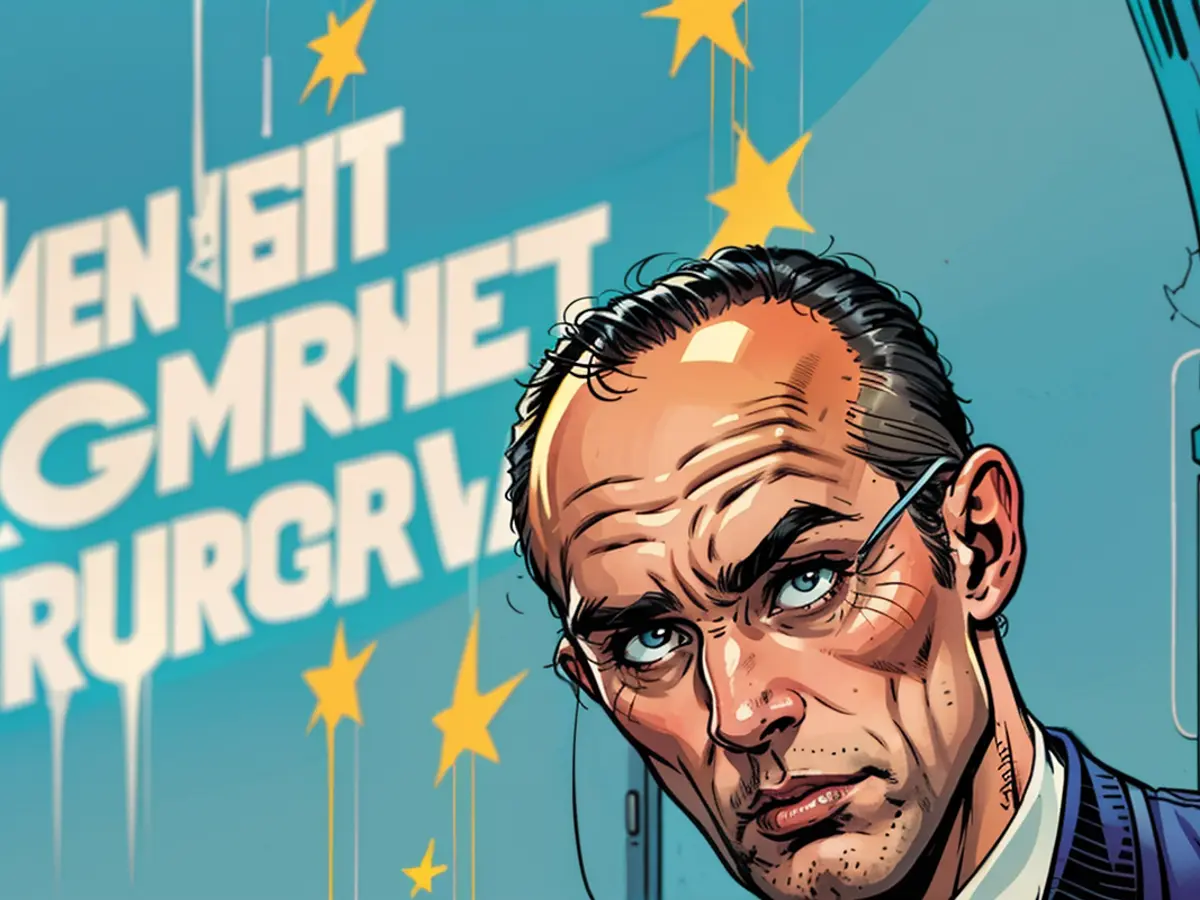Political gatherings or events. - Can the CDU collaborate with the Left Party? Merz disassociates from Wagenknecht.
Friedrich Merz, the head of the Christian Democratic Union (CDU), has emphasized the contrasting political ideologies between his party and the Left Party (Linke) led by Sahra Wagenknecht, leading to a discussion on potential power moves during the upcoming state elections.
"There's definitely no political overlap with this group—if they even become significant," Merz stated in Berlin. "We'll see where everything else stands as a result of the election outcomes." Past comments from Merz were met with critique from Wagenknecht. The CDU in Thuringia has seemed amiable to discussions with the Linke.
Elections are forthcoming in Thuringia, Saxony, and Brandenburg in September, with the AfD as the leading force in the previous polls. Difficult government formations are predicted in all three states. The Linke has attained double-digit results in all three states during the European elections. If the party manages to replicate this in the autumn, it might assume a significant role.
Merz was questioned by the ARD regarding the feasibility of collaborating or forming a coalition with the Linke to thwart AfD minister-presidents in the east. The CDU leader responded: "We've consistently stated that. We don't work with such right-wing and left-wing parties." Meanwhile, for Wagenknecht, she's sometimes right-wing and other times left-wing.
Wagenknecht, the founder of the Linke, stated: "What Friedrich Merz mentions is political naivety and will make the CDU even weaker in the east." The Linke chairwoman also countered Merz: "Olaf Scholz is the worst chancellor in the history of the Federal Republic, but Friedrich Merz would be—especially with the Greens as coalition partners—even worse." The Linke's General Secretary Christian Leye stated in the Welt: "We're not seeking a government coalition with the CDU." Nevertheless, Merz must acknowledge the political realities in Eastern Germany.
"I emphasized that we have no agreement whatsoever with this group on political issues," Merz said ahead of a faction meeting in Berlin. "Wagenknecht's positions on foreign and economic policy are completely incompatible with our positions." He discussed contentious issues "from the perspective of federal politics," said Merz. "We won't be addressing this any further. We'll do that if there are other results." Merz would, of course, also speak with the CDU state chairmen and consider any distinctions in views.
Thuringia CDU chief Voigt, aiming to become minister-president in the autumn and needing coalition partners for that, said: "Friedrich Merz spoke for the federal level." In Thuringia, the focus should be on examining political shifts and determining which specific issues move individuals. "Then we'll engage in talks about how we can tackle these issues jointly."
For the Linke state chairwoman Katja Wolf, Voigt has nothing but appreciation in Stern: "I have a reasonable conversation with Katja Wolf, who I've always considered a practical municipal politician." Wolf and Linke co-chairman Steffen Schütz criticized: "Since Friedrich Merz hasn't lived up to his promise to meaningfully weaken the AfD as yet, he's now creating another obstacle." Thuringia doesn't require guidance from Berlin; instead, it requires rational and trustworthy politics.
Wagenknecht advocates socio-economic positions on the left, such as the demand for higher pensions, increased minimum wages, and wealth redistribution. In contrast, she slows down climate action and calls for migration restrictions and social benefits for immigrants. In foreign policy, the Linke wants to terminate German military aid for Ukraine and negotiate with Russia.
Whether Wagenknecht would form a coalition with the CDU remains uncertain. She states that what matters is not continuing as is, but developing beyond the current state. The CDU has banned collaborations or similar cooperation with the AfD and the Linke through party assembly resolutions in the past.
CSU state group leader Alexander Dobrindt called it unsurprising that a party like the Linke, which refers to Russia, President Putin, and communism, could never be a coalition partner for the Union. In general, he suggests that the Union should concentrate on its own strength in upcoming election campaigns.
SPD parliamentary group leader Rolf Mützenich said: "We're not pursuing cooperation with Sahra Wagenknecht because Sahra Wagenknecht and her party have no shared values at all." Unfortunately, the Linke prefers division over working together with different forces.
Read also:
- The CDU in Thuringia has shown willingness to discuss potential collaborations with the Left Party (Linke) led by Sahra Wagenknecht, despite Merz's opposition.
- In the upcoming state elections in Thuringia, Saxony, and Brandenburg, the AfD is expected to be a significant force, leading to complex government formations.
- Mario Voigt, the Thuringia CDU chief, emphasizes that Merz's statements reflect the federal perspective and that local discussions should focus on identifying shared issues.
- In response to ARD's inquiries, Friedrich Merz reaffirmed that the CDU will not collaborate with right-wing or left-wing parties such as the Linke.
- Sahra Wagenknecht, the Linke founder, criticized Merz's statements, labeling them as political naivety that weakens the CDU in the east.
- The CDU and the Linke have consistently held different stances on various issues, such as foreign policy, economic policy, migration, and climate action.
- In the European elections, the Linke secured double-digit results in all three states, suggesting potential significant influence in the upcoming elections.
- Friedrich Merz must consider the political realities in Eastern Germany and engage in local discussions, regardless of his strong opposition to the Linke.
- Despite their differences, Katja Wolf, the Thuringia Linke state chairwoman, has a respectful conversation with Mario Voigt, emphasizing the need for practical, local solutions and not guidance from Berlin.








